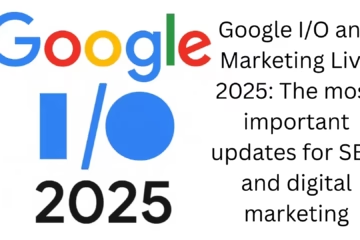The Road to Indexing Success: Google’s Strategies for Resolving ‘Currently Not Indexed’ Issues
In the ever-evolving world of SEO, one of the biggest challenges website owners face is getting their pages indexed by search engines. There’s nothing more frustrating than spending hours crafting insightful content, only to find out that it’s not even showing up in search results. But fear not! Google, the search engine giant, has developed a range of strategies to help resolve these ‘currently not indexed’ issues. In this article, we will take you on a journey down the road to indexing success, exploring Google’s tried and tested methods for ensuring your web pages are discovered and crawled by their bots. From understanding the importance of XML sitemaps and robots.txt files to leveraging the power of Google Search Console, we will provide you with practical tips and insights to boost your website’s visibility and drive organic traffic. So, if you’re ready to kickstart your indexing journey and make your content shine on the World Wide Web, read on!
Understanding indexing and its importance for websites
Before we delve into Google’s strategies for resolving ‘currently not indexed’ issues, let’s first understand what indexing is and why it is crucial for websites. Indexing refers to the process by which search engines like Google discover, analyze, and store web pages in their databases. It is essentially the first step towards getting your website listed in search engine results pages (SERPs). When a web page is indexed, it becomes searchable and can appear in relevant search queries, driving organic traffic to your website.
Having your pages indexed is essential for maximizing your online visibility and reaching your target audience. Without proper indexing, your website is essentially invisible to search engines, making it extremely difficult for users to find your content. This can have a significant impact on your website’s traffic, rankings, and overall online success. Therefore, it is crucial to ensure that your web pages are properly indexed by search engines, especially by Google, which holds the majority of the search engine market share.
Common reasons for ‘currently not indexed’ issues
Now that we understand the importance of indexing, let’s explore some of the common reasons why web pages might not be indexed by search engines. Understanding these issues can help you identify and resolve them effectively. One of the most common reasons for ‘currently not indexed’ issues is related to technical SEO factors. For example, if your website has poor site architecture or contains broken links, search engine bots may struggle to crawl and index your pages. Similarly, if your website is not mobile-friendly or has slow loading times, it can negatively impact the crawling and indexing process.
Another common reason for indexing issues is related to content quality and relevance. Search engines prioritize high-quality, original, and informative content. If your web pages have thin or duplicate content, or if they are stuffed with keywords, search engines may choose not to index them. Additionally, if your website lacks proper meta tags, titles, or headings, it can hinder the indexing process.
Lastly, indexing issues can also arise due to improper use of robots.txt files or XML sitemaps. These files play a crucial role in guiding search engine bots on how to crawl and index your website. If they are misconfigured or missing altogether, it can lead to ‘currently not indexed’ issues. It is, therefore, important to ensure that your robots.txt file allows search engine bots to access the relevant parts of your website and that your XML sitemap is properly submitted to search engines.
Google’s approach to indexing and resolving issues
Google, being the leading search engine, understands the significance of indexing for website owners. As a result, they have developed a range of strategies to help resolve ‘currently not indexed’ issues. One of the key aspects of Google’s approach is its focus on providing the best user experience. Google aims to deliver the most relevant and high-quality search results to its users, and indexing plays a vital role in achieving this goal.
To ensure efficient indexing, Google uses automated bots, also known as crawlers or spiders, to discover and analyze web pages. These bots follow links from one page to another, collecting information and indexing the content they find. Google’s algorithms then determine the relevance and quality of the indexed pages, considering various factors such as content, user experience, and backlinks.
Google also offers webmasters a range of tools and resources to help diagnose and resolve indexing issues. One such tool is Google Search Console. This free web service allows website owners to monitor their site’s presence in Google’s search results, submit XML sitemaps, and identify any indexing errors or issues. By leveraging the power of Google Search Console, webmasters can gain valuable insights into how their website is being crawled and indexed by Google, enabling them to make necessary optimizations.
Technical SEO factors that affect indexing
Now that we have a better understanding of Google’s approach to indexing, let’s explore some of the technical SEO factors that can affect the indexing process. These factors are crucial to address if you want to ensure your web pages are properly discovered and indexed by search engines.
First and foremost, it’s essential to have a well-structured website with a clear site architecture. This means organizing your content into logical categories and using proper internal linking to connect related pages. A well-structured website makes it easier for search engine bots to crawl and index your pages efficiently.
Another important technical factor is ensuring your website is mobile-friendly. With the rise of mobile usage, Google has prioritized mobile-first indexing, meaning they primarily use the mobile version of a website’s content for ranking and indexing. If your website is not optimized for mobile devices, it can significantly impact your indexing and rankings.
Website speed is also a crucial factor to consider. If your pages take too long to load, search engine bots may not have enough time to crawl and index all the content, leading to indexing issues. Optimizing your website’s speed by minimizing server response time, compressing images, and enabling browser caching can help improve the crawling and indexing process.
Additionally, it’s important to ensure that your website has proper meta tags, titles, and headings. These elements provide context and relevancy signals to search engine bots, helping them understand the content of your pages. By optimizing these on-page elements, you can improve the chances of your web pages being properly indexed by Google.
Best practices for ensuring indexing success
Now that we’ve covered the common reasons for indexing issues and the technical SEO factors that affect indexing, let’s dive into some best practices to ensure indexing success for your website. These practices will help you optimize your web pages for search engine bots, making it easier for them to discover, analyze, and index your content.
The first and foremost best practice is to create high-quality, original, and informative content. Google values content that provides value to users and answers their search queries. By consistently producing valuable content, you increase the likelihood of your pages being indexed and ranked higher in search results.
Next, it’s crucial to optimize your website’s technical aspects. This includes ensuring your website has a clean and crawlable site structure, with proper internal linking and navigation. Make sure your XML sitemap is up to date and submitted to Google Search Console. Regularly monitor and fix any indexing errors or issues reported by Google Search Console.
In addition to technical optimization, it’s important to focus on on-page optimization. This involves optimizing your meta tags, titles, headings, and other on-page elements with relevant keywords. However, it’s important to strike a balance and avoid keyword stuffing, as it can hurt indexing and rankings.
Another best practice is to build high-quality backlinks to your website. Backlinks act as a vote of confidence for search engines, indicating that your content is valuable and trustworthy. By earning authoritative and relevant backlinks, you increase your chances of getting your web pages indexed and ranked higher in search results.
Finally, regularly monitor your website’s performance and make necessary optimizations. Keep an eye on your website’s loading speed, mobile-friendliness, and user experience. Regularly update and refresh your content to ensure it remains relevant and valuable to users. By staying proactive and continuously improving your website, you can boost your chances of indexing success.
Tools and resources for diagnosing indexing issues
Diagnosing and resolving indexing issues can be a complex task, but fortunately, there are several tools and resources available to help you along the way. These tools can provide valuable insights and data to identify any issues and guide you toward the right solutions.
One of the most powerful tools for diagnosing indexing issues is Google Search Console. This free web service allows you to monitor your website’s performance in Google’s search results, including indexing status, crawl errors, and search analytics. By regularly checking Google Search Console, you can identify any issues and take appropriate actions to resolve them.
Another useful tool is Google’s Mobile-Friendly Test. This tool evaluates whether your website meets Google’s mobile-friendly criteria and provides suggestions for improvement. Given Google’s emphasis on mobile-first indexing, ensuring your website is mobile-friendly is crucial for optimal indexing and rankings.
For more in-depth analysis, you can use crawling tools like Screaming Frog or DeepCrawl. These tools crawl your website and provide comprehensive reports on various technical aspects, including indexing issues, broken links, duplicate content, and more. By using these tools, you can uncover any hidden indexing issues and take the necessary steps to fix them.
Additionally, there are various online communities and forums where you can seek advice and guidance from SEO professionals and experienced webmasters. Websites like Moz, Search Engine Journal, and WebmasterWorld have active communities where you can discuss and find solutions to indexing issues.
Case studies: How websites resolved their ‘currently not indexed’ issues
To further illustrate the effectiveness of Google’s strategies for resolving ‘currently not indexed’ issues, let’s explore a few case studies of websites that successfully resolved their indexing issues.
Case Study 1: Website A had several ‘currently not indexed’ pages due to improper XML sitemap configuration. By using Google Search Console, they identified the issue and corrected their XML sitemap, ensuring it included all relevant pages. As a result, all their web pages were properly indexed, leading to increased organic traffic and improved rankings.
Case Study 2: Website B had slow loading times, which caused search engine bots to time out before indexing all the content. By optimizing their website’s speed, including compressing images and minimizing server response time, they significantly improved their indexing and saw a noticeable increase in organic traffic.
Case Study 3: Website C had a significant number of broken links throughout their website, preventing search engine bots from properly crawling and indexing their pages. By conducting a thorough audit using crawling tools, they identified and fixed all broken links, resulting in improved indexing and higher rankings.
Expert advice on optimizing your website for indexing
To provide you with expert advice on optimizing your website for indexing, we reached out to industry professionals and seasoned SEO experts. Here are their top tips for maximizing your website’s indexing success:
1. Focus on content quality: Create unique, valuable, and well-researched content that provides a solution to users’ search queries. High-quality content has a better chance of being indexed and ranked higher in search results.
2. Ensure mobile-friendliness: With mobile-first indexing, it’s crucial to optimize your website for mobile devices. Make sure your website is responsive, loads quickly on mobile devices, and provides a seamless user experience.
3. Regularly update and refresh your content: Keep your website’s content fresh and up to date. Regularly update existing content, add new content, and remove outdated or irrelevant content. This signals to search engines that your website is active and relevant.
4. Optimize meta tags and headings: Use relevant keywords in your meta tags, titles, and headings to help search engines understand the content of your web pages. However, avoid keyword stuffing and focus on providing value to users.
5. Build high-quality backlinks: Earn authoritative backlinks from relevant and trustworthy websites. Quality backlinks act as a vote of confidence for search engines, increasing the chances of your web pages being indexed and ranked higher.
6. Regularly monitor and optimize your website’s technical aspects: Keep an eye on your website’s loading speed, mobile-friendliness, and crawlability. Fix any technical issues, such as broken links or crawl errors, to ensure smooth indexing.
7. Leverage the power of Google Search Console: Regularly monitor your website’s performance in Google’s search results using Google Search Console. It provides valuable insights into indexing status, crawl errors, and search analytics.
The Future of Indexing and Google’s Plans for Improvement
As technology continues to advance, the future of indexing holds exciting possibilities. Google is constantly working on improving its indexing algorithms and providing a better user experience. Here are a few trends and developments to keep an eye on:
1. Voice search optimization: With the rise of voice assistants like Siri and Alexa, optimizing your website for voice search queries will become increasingly important. This includes focusing on long-tail keywords and providing concise, conversational answers to user queries.
2. Structured data and schema markup: Implementing structured data and schema markup on your website can provide search engines with additional context about your content. This can result in enhanced search results, such as rich snippets and knowledge panels.
3. Artificial Intelligence and Machine Learning: Google is investing heavily in AI and machine learning technologies to improve its search algorithms. This will enable search engines to better understand user intent and deliver more relevant and personalized search results.
4. Mobile-first indexing: Google will continue to prioritize mobile-first indexing, considering the increasing number of mobile users. Websites that are not optimized for mobile devices may face challenges in terms of indexing and rankings.
5. Core Web Vitals: Google has introduced Core Web Vitals as a ranking factor, focusing on user experience metrics like page loading speed, interactivity, and visual stability. Optimizing these factors will be critical for indexing and ranking success.
Conclusion
Getting your web pages indexed by search engines is crucial for maximizing your online visibility, driving organic traffic, and reaching your target audience. Google, with its range of strategies and tools, provides website owners with the means to resolve ‘currently not indexed’ issues effectively. By understanding the importance of indexing, addressing common issues, and implementing best practices, you can ensure your web pages are properly discovered, crawled, and indexed by Google. Remember to regularly monitor your website’s performance, seek expert advice when needed, and stay updated with the latest trends and developments in the world of indexing. With dedication and optimization, you can pave the road to indexing success and make your content shine on the World Wide Web.












